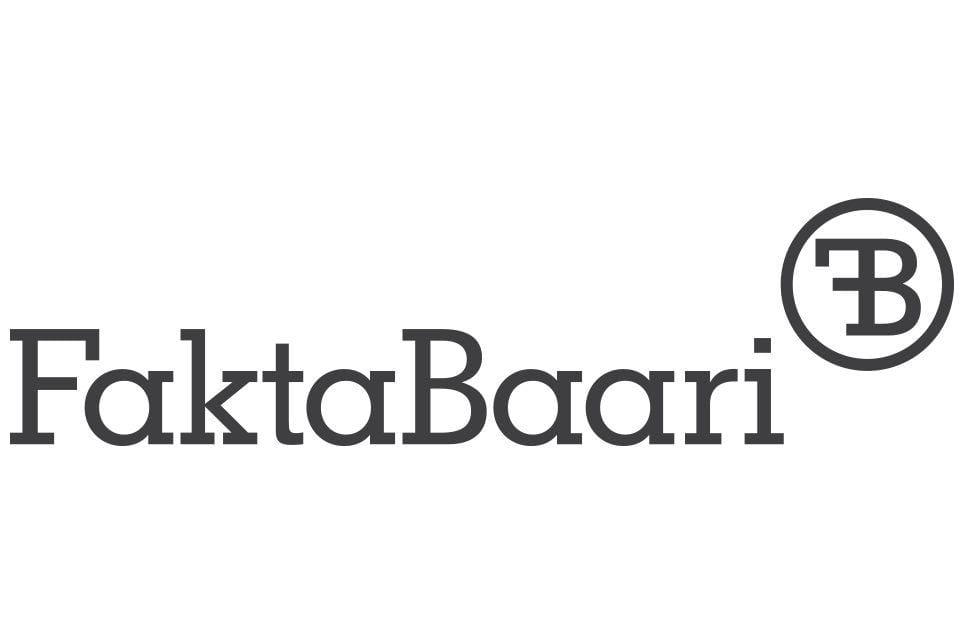This year’s recipients of the Alfred Kordelin Prize, awarded to meritorious contributors, are Olli Vapalahti, Professor of Zoonotic Virology; Stefan Moster, translator; and the Faktabaari. Each prize winner receives €50,000.
With the Alfred Kordelin Prize, the Foundation wishes to celebrate individuals, working groups and collectives who perform important work in our society, and create the conditions for a better future. The Foundation has awarded similar recognitions of achievement since 1920.
80 stakeholders, ranging from universities to art organizations, can make proposals for prize winners. From the 53 proposals, winners were chosen by a committee appointed by the Foundation, consisting of Juha Laaksonen (chair), Jukka Seppälä, Markus Leikola, Kaisa Häkkinen, Maria Lasonen-Aarnio, and Mikko Kosonen.
– Public education is the foundation for a better future: its advancement requires time and tenacity, and is not always in line with the latest trends. Yet, it is always timely. I think this describes the prize winners well. They represent different fields, and such versatility defines the Alfred Kordelin Foundation, says Juha Laaksonen, chair of the Prize Committee.
The Prize Committee’s award criteria
Stefan Moster, translator and author

Stefan Moster’s achievements as a translator of Finnish fiction into German are exceptionally extensive. He has promoted Finnish literature and boosted its visibility in the German language area in an invaluable manner. The number of Moster’s translations into German is astounding, and he is in a league of his own for tackling works of fiction that are exceptionally challenging to translate. This has been possible thanks to his skill and linguistic virtuosity.
His most important feat is translating the works of Volter Kilpi into German. Because of Kilpi’s exceptionally rich language and original style, his works have been considered untranslatable. The German translation of Alastalon salissa, i.e. Im Saal von Alastalo, was published in 2021. It has received rave reviews in both Finland and Germany, and was awarded the distinguished Helmut M. Braem translator prize. The translation into German is a major cultural feat, paving the way for Kilpi to achieve the international renown he would always have deserved.
Moster has also translated the key works of many major Finnish authors, such as Rosa Liksom, Kari Hotakainen, and Hannu Raittila. Amongst his translations are also the poems of Mirkka Rekola, and the play Poltettu oranssi by Eeva-Liisa Manner. The genres he has translated range from crime and thrillers to literature for children and youth. In our times, more than ever in need of cultural dialogue and openness, it is important to make Finnish culture a visible part of the European cultural capital. As such, it can also be a source of inspiration. In this task, multi-skilled cultural ambassadors like Moster are invaluable.
Olli Vapalahti, Professor of Zoonotic Virology

Olli Vapalahti has conducted impactful research of the highest quality on zoonotic diseases, such as nephropathia epidemica, the zika virus disease, the coronavirus disease caused by SARS-CoV-2, and avian influenza. The topics of his internationally renowned research have included both global viral diseases and viral diseases that are typical in Finland. The multidisciplinary nature of Vapalahti’s approach makes solutions to the most complex health questions attainable. Vapalahti also has the ability to generate knowledge fast in support of political decision-making, and to explain difficult matters calmly, clearly, and understandably.
Zoonotic diseases and the risks they pose for humankind have long been under the special monitoring of WHO, but it took the coronavirus pandemic for us to understand the full scope of the risks involved in zoonosis. Vapalahti’s research group was analysing the new virus in the frontline, focusing its resources on the coronavirus all through the pandemic. The group has published dozens of research articles on the virus, and scientific journals have deemed many of them to be amongst the best in their field. This is an extremely impressive achievement, as the genome of the virus was released as late as in January 2020. In the unprecedented global crisis brought on by the pandemic, there was high demand for research results. Vapalahti played an essential role as reports on the latest research results from Finland and around the world were delivered to the Finnish Government. The purpose of the reports was to deliver up-to-date research results to decision-makers facing a difficult situation. Vapalahti also made himself generously available to the media when there was an unprecedented demand for expert statements and assessments.
Vapalahti’s systematic research into various zoonotic virusdiseases highlights why we need long-term basic research. We often fail to see what the opportunities for applying basic research in practice are; also, basic research is not often perceived to be trendy. The full significance of results may at times be understood only years from now. When the coronavirus pandemic broke out, non-experts – both average citizens and political decision-makers – were instantly made aware of the importance of Vapalahti’s research. Vapalahti’s response to the multidisciplinary challenges created by the situation has been excellent and exemplary.
Faktabaari / Avoin yhteiskunta ry.

Faktabaari, a politically unaffiliated fact checking service established in 2014, is open for all and operates online. In a society that relies on digital information, it provides a unique guarantee against the growing volumes of disinformation. This work is highly important in our times, where false information can spread with astonishing speed. In media, and in the constantly changing and multifaceted social media in particular, the reliability of information is essential. Faktabaari promotes fact-based public discussion, and highlights false or misleading information used e.g. in politics. Faktabaari has proven to be indispensable in crises and in the pivot points of democracy: before elections, during the coronavirus pandemic, and after Russia launched its war of aggression in Ukraine. Faktabaari has solidified its position as a tool and partner for journalists, educators, and other disseminators of information as they fulfil their task of passing on truthful information.
Faktabaari and Avoin yhteiskunta ry. – the association which founded Faktabaari – have a commendable educational goal as they develop and maintain the media literacy of the general public. Connections to important international networks, Finnish universities and Sitra have for their part guaranteed the high quality and cross-border impact of Faktabaari’s operations. As Faktabaari assesses information, it relies on the strictest standards and ethical guidelines of western journalism. The unique work of Faktabaari is another important indicator of how we must vigilantly tend to and uphold the principles of openness and truthful information. For this work, the Kordelin Foundation awards Faktabaari a well-deserved prize of recognition.
The Alfred Kordelin Foundation is a private, non-profit foundation that supports science, the arts, and public education with annual grants over six million euros.
More information
Erik Båsk
Managing Director
Alfred Kordelin Foundation
+358 40 825 8071